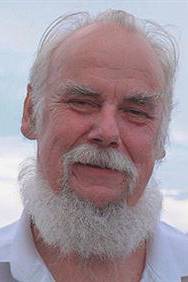Håkan Wiberg was a frequent visitor to PRIO from the mid-1960s onwards. In 1980 and 1982 he spent several months as guest researcher at PRIO. Wiberg remained in close contact with PRIO and served on the editorial committee of Journal of Peace Research (JPR) continuously since 1977 – a total of 33 years - longer than anyone else.
Wiberg was a major influence in peace research, not only in the Nordic countries, but also internationally. His doctorate was in sociology (University of Lund, 1977), but he was also well trained in history, philosophy and mathematics. The multidisciplinary background characterized his work. His texbook, Konfliktteori och fredsforskning [Conflict Theory and Peace Research], first published by Scandinavian University Books in 1976, bore testimony to his broad orientation. The editor of JPR, Nils Petter Gleditsch says that he always knew that ‘Håkan had an amazing ability to says something sensible about a manuscript, almost regardless of theme and methodology. He also had a tolerant attitude even when – on the basis of other reviews and my own reading – I reached a conclusion that differed from his’.
For almost two decades, Wiberg’s main base was at Lund University, first as a Director of the Lund University Peace Research Institute (1971-80), then as a Professor of Sociology (1980-88). In 1988, he took up the post as the Director of the Copenhagen Peace Research Institute (COPRI), a post that he held for the next 14 years (1988-2001). This was a period where COPRI did exceptionally well, which is somewhat ironic given that soon after Wiberg left the post, COPRI was suggested closed by Anders Fogh Rasmussens new government. While a closure was avoided (in large measure because of intense lobbying of Tanja Cronberg, COPRI’s new director), COPRI was merged with several other institutions into the Danish Institute for International Studies (DIIS) in late 2002. Wiberg retired from DIIS in 2007, but remained professionally active.
During Wiberg’s directorship, COPRI gained major recognition for the Copenhagen school in International Relations. Among the most influential voices are Barry Buzan, Ole Wæver, Lene Hansen, and Jaap de Wilde. Wiberg did not himself belong to the Copenhagen school, but as the Director of COPRI he was instrumental in securing favorable working conditions for it. Wiberg has played a major role for the development of peace research, as an original scholar, as an open-minded inspirator, and as a research manager committed to the highest quality standards.






